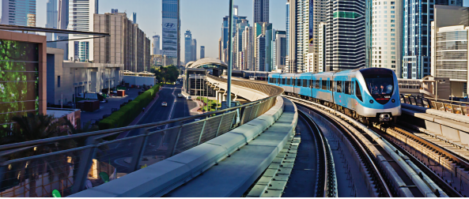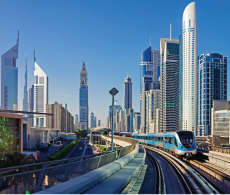September 17, 2015
Growth of on demand economy is transforming work and workplaces 0
 Some of the key characteristics of the workplace of the near future are starting to crystallise pretty rapidly. In many ways, employees are aware of this to a greater extent than employers, legislators and politicians. For example, this week and over recent weeks Uber has been arguing in courts around the world that its drivers are not employees but are in fact self-employed. This is the shape of things to come. In the UK, around a fifth of the workforce is already freelance or self-employed, something which politicians like to misinterpret as small business, possibly because it makes them look better because they associate it with entrepreneurialism and the prospects of these firms employing other people. The idea this is simply not the case is supported by a new report from software provider Intuit which claims that just 13 percent of British workers think they will be in traditional employment in 2025.
Some of the key characteristics of the workplace of the near future are starting to crystallise pretty rapidly. In many ways, employees are aware of this to a greater extent than employers, legislators and politicians. For example, this week and over recent weeks Uber has been arguing in courts around the world that its drivers are not employees but are in fact self-employed. This is the shape of things to come. In the UK, around a fifth of the workforce is already freelance or self-employed, something which politicians like to misinterpret as small business, possibly because it makes them look better because they associate it with entrepreneurialism and the prospects of these firms employing other people. The idea this is simply not the case is supported by a new report from software provider Intuit which claims that just 13 percent of British workers think they will be in traditional employment in 2025.















 The allure of London for Generation Y appears to be fading, according to
The allure of London for Generation Y appears to be fading, according to 




 Large firms that occupy several separate floors in a prime office may need to pay tens of thousands of pounds more in rates, property managers have been warned. The decision by the UK Supreme Court on business rates in shared office buildings will lead to higher fees for many businesses in Scotland, according to commercial property experts at Colliers International. The firm says that the case of Woolway Valuation Office v Mazars, in which the Supreme Court held that businesses occupying space across several floors should pay separate rates for each, will lead to changes in valuations across the country that will cost firms millions of pounds. Up until now, such arrangements were charged as a “single occupation” and benefited from economies of scale. Paying for two separate sets of rates is likely to be more expensive, and the court decision even allows for the changes to be implemented retrospectively.
Large firms that occupy several separate floors in a prime office may need to pay tens of thousands of pounds more in rates, property managers have been warned. The decision by the UK Supreme Court on business rates in shared office buildings will lead to higher fees for many businesses in Scotland, according to commercial property experts at Colliers International. The firm says that the case of Woolway Valuation Office v Mazars, in which the Supreme Court held that businesses occupying space across several floors should pay separate rates for each, will lead to changes in valuations across the country that will cost firms millions of pounds. Up until now, such arrangements were charged as a “single occupation” and benefited from economies of scale. Paying for two separate sets of rates is likely to be more expensive, and the court decision even allows for the changes to be implemented retrospectively.
 The number of firms planning to expand in London is at its highest level (50 percent) since 2012, though retaining employees and improving the capital’s infrastructure remain key concerns. According to the re-launched
The number of firms planning to expand in London is at its highest level (50 percent) since 2012, though retaining employees and improving the capital’s infrastructure remain key concerns. According to the re-launched 
 Newly published research
Newly published research









September 18, 2015
What Robert Frost can teach us about the changing workplace
by Mark Eltringham • Comment, Facilities management, Flexible working, Technology
More →